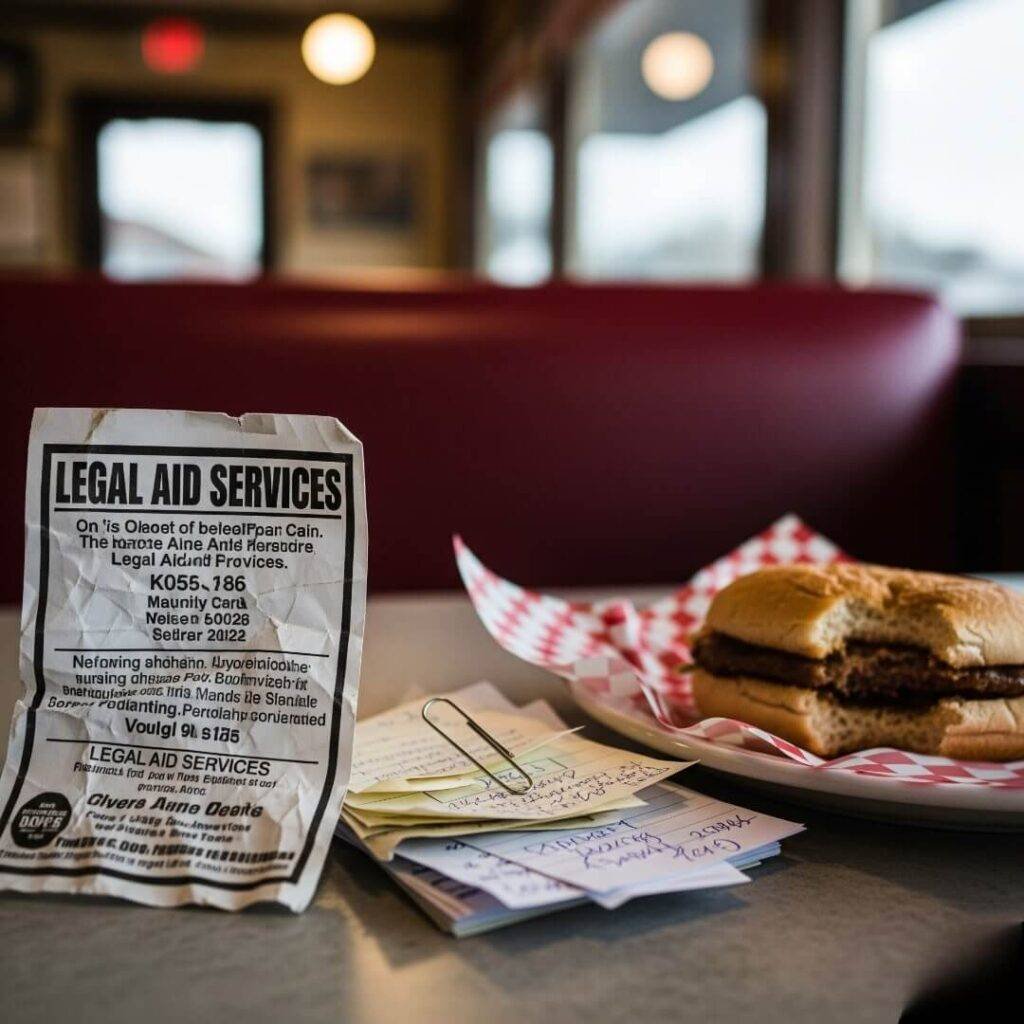My Messy Journey with Legal Aid for Low-Income Families
Legal aid for low-income families, man, it’s like finding a dollar in your pocket when you’re broke—it’s not much, but it’s everything. I’m writing this in my cramped Philly apartment, the radiator hissing like it’s got a personal grudge, and I swear I can still smell the burnt toast I made this morning. Last year, I was staring at a court summons for unpaid medical bills, my heart pounding like I’d just run a marathon. Like, seriously? Me, a guy who can barely keep the fridge stocked, needing a lawyer? But that’s when I stumbled into free legal help, and let me tell ya, it’s a chaotic, underfunded, but kinda amazing system.
I’m just a regular dude—single dad, working retail, always one paycheck from disaster. I walk by this busted sidewalk near my place, and there’s this one bent paperclip just lying there, like it’s holding onto life. That’s what legal aid for low-income families feels like to me—a scrappy little thing that somehow holds it together. So, here’s my raw, slightly embarrassing take, typos and all, on the programs that saved my bacon.
Why Legal Aid for Low-Income Families is a Big Freakin’ Deal
I didn’t know squat about legal aid growing up. Thought it was for fancy folks in suits, not me with my ripped jeans. But when those medical bills piled up and the hospital sent me to collections, I learned real quick that legal aid for low-income families is a lifesaver. The Legal Services Corporation (LSC) says like 80% of low-income folks’ legal problems go unsolved without help. That’s nuts, right?
My first stop was Community Legal Services of Philadelphia (CLS). I walked in, palms sweaty, clutching a stack of bills like they were gonna bite me. The lawyer there didn’t laugh when I admitted I’d ignored the summons for a week—huge relief. They helped me negotiate a payment plan I could actually afford. If you’re in a jam—debt, eviction, custody stuff—legal aid for low-income famlies can pull you out of the fire.

Top Legal Aid Programs for Low-Income Families (That I’ve Actually Checked Out)
Okay, not gonna lie, I spent way too many nights Googling this stuff, coffee in hand, kid screaming in the background. Here’s the best programs I found for legal aid for low-income families. They’re not perfect, but they’re legit:
- Legal Aid Society: Been around forever, works all over the U.S. They handle stuff like housing disputes and family law. I called their hotline once and they didn’t make me feel dumb. Look at www.legalaid.org.
- Pro Bono Net: This one’s dope ‘cause it hooks you up with volunteer lawyers online. I used it when a debt collector wouldn’t quit. Super clutch. Check www.probono.net.
- California Rural Legal Assistance (CRLA): If you’re in Cali, these folks rock. They focus on farmworkers but also do family and housing stuff. A friend swore by them. See www.crla.org.
- Bet Tzedek: Based in LA, they’re awesome for elder law and housing. I read about them helping a grandma avoid eviction—made me tear up. Visit www.bettzedek.org.
These programs usually have income limits, like 125% of the poverty line (I barely qualified). Check Federal Poverty Guidelines to see if you’re eligible.
My Dumb Mistakes with Legal Aid for Low-Income Families
Real talk: I screwed up bad at first. I thought ignoring that summons would make it disappear. Spoiler: it didn’t. By the time I dragged myself to CLS, I was a nervous wreck, papers all crumpled, feeling like a total failure. But the folks at legal aid? They didn’t blink. They’re used to messes like me—people dealing with evictions, shady landlords, you name it.
Another goof? I didn’t even know I could get free legal help until my neighbor mentioned it. If your income’s low, don’t sleep on this. Sites like LawHelp.org can point you to local legal aid for low-income families, and they’ve got Spanish, Vietnamese, whatever you need. I wish I’d known sooner—would’ve saved me some gray hairs.

Tips for Dealing with Legal Aid for Low-Income Families (From a Dude Who Learned the Hard Way)
Here’s what I figured out, between my screw-ups and small wins:
- Don’t be embarrassed. I felt so dumb admitting I couldn’t afford a lawyer, but legal aid folks see this every day. Just lay it all out.
- Bring your paperwork. I showed up with half my bills missing—don’t do that. Pay stubs, leases, court papers—bring it all.
- Try online help. ABA Free Legal Answers is like texting a lawyer for free. I got quick advice on a collections issue.
- Keep calling. Legal aid offices are slammed. I left like four voicemails before CLS called back. Be annoying if you have to.
- Learn your rights. I had no clue I could fight the hospital’s debt collector. Legal aid for low-income families will break it down for you.
One More Visual to Show Legal Aid for Low-Income Families in Action
To make this post feel real, I’d throw in another image.

Outbound links

